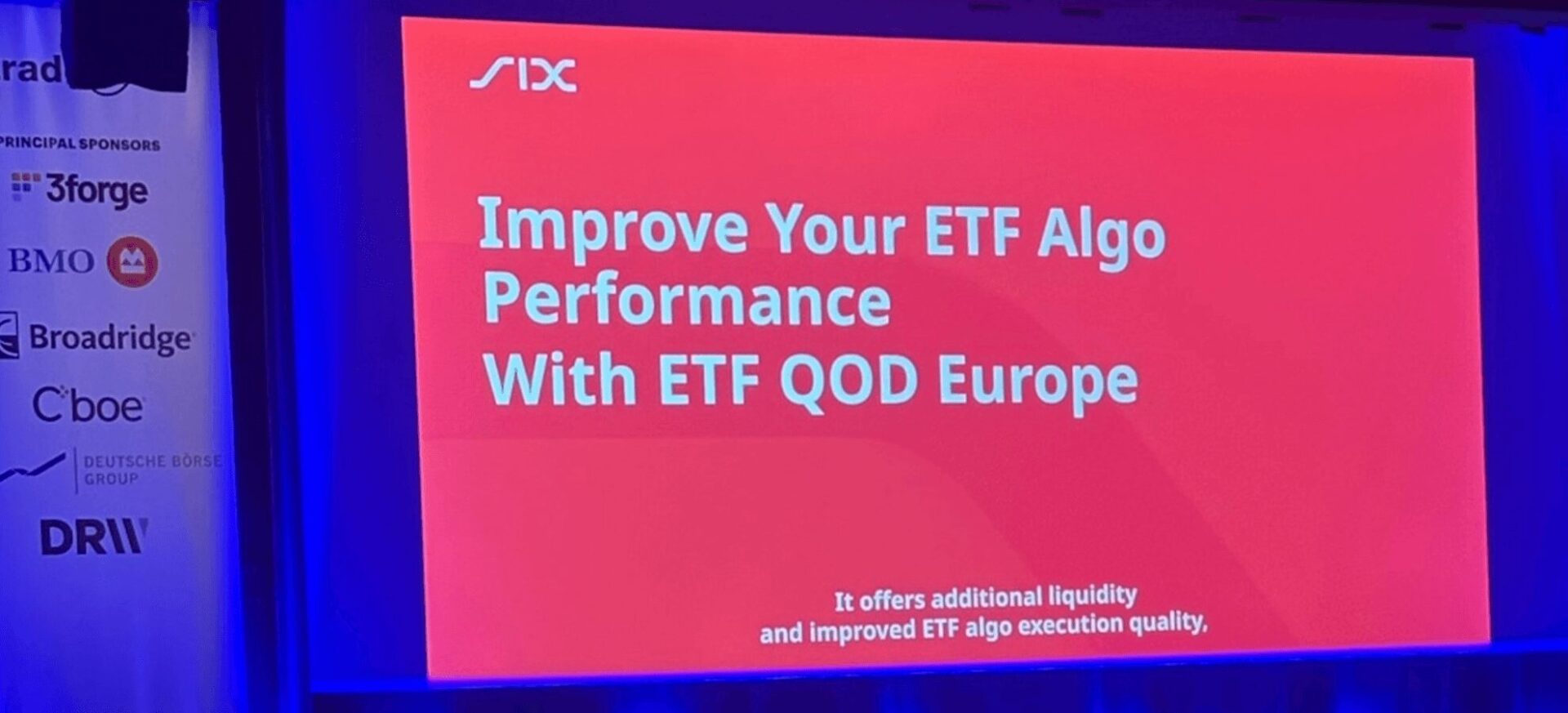25 years of TradeTech – the good, the bad and the road ahead

By Tim Focas, Head of Capital Markets
As TradeTech marked its 25th anniversary last week, industry veterans and emerging voices alike gathered in a sun swept Paris to reflect on the seismic changes the equities trading world has undergone — and to gaze ahead at what’s next.
From the rise of automation to the regulatory tug-of-war and the promise (or threat) of AI, the conversation was a sharp reminder of how far we’ve come, but more importantly, how fast we’re still moving.
Tech – the great transformative force
The dominant theme of the future of equities panel was, unsurprisingly, technology. As one speaker quipped, “the clue is in the name — Trade Tech.” Over the past 25 years, technology has fundamentally reshaped trading, slashing costs, improving efficiency, and opening new frontiers. What was once a shout across the trading floor is now a whisper to machines.
From the early adoption of electronic trading technology to today’s frontier technologies like machine learning, the panelists agreed in unison – tech has done more good than harm. It has democratised access, professionalised the skillset, and introduced sophisticated analytics that make capital markets more transparent and resilient.
Regulation: innovation’s necessary nemesis?
But where technology has often led, regulation has followed — sometimes effectively, but often not. While no one on the panel argued against the need for regulatory oversight, frustrations were evident. Industry stalwarts Rob Boardman, CEO of EMEA execution services at Virtu, and Alasdair Haynes, founder of soon to be SIX owned Aquis, both highlighted the challenges of fragmented regulation post-Brexit and the need for more agile, experiment-led policy frameworks, like those seen in the US.
A recurring message was that regulation must evolve alongside the markets it governs – without stifling innovation. Haynes said, “we’ve asked for a consolidated tape for over 25 years – and we’re still only part of the way there.” Boardman added, “do regulators really know how to trade equities in large size better than an institutional asset manager?” The call for pragmatism and flexibility in European policy was clear.

The human element is not dead, just different
Another central question was whether there’s still a place for humans in today’s trading ecosystem. The consensus was absolutely — but the skill set has changed beyond recognition.
Modern traders need more than market instinct. Today, they must be data-savvy, tech-literate, and adaptable. Soft skills – like judgement, nuance, and the ability to contextualise vast amounts of information – remain irreplaceable. But traditional paths are fading. As Boardman put it, “If you’re not using technology, you’re not in the game.”
AI in financial markets is already reshaping workflows, from summarising news to aiding execution decisions, and it is set to play an even greater role in real-time analysis and predictive modelling. Still, there was concern that as machines get smarter, fewer people may be needed – a sobering, if realistic, projection for the future workforce.
Post-trade and the path ahead
Post-trade inefficiencies, especially in Europe, were flagged as another persistent “ugly” issue. While the US benefits from a unified system with one CSD and clearinghouse, Europe remains fragmented. Simplifying this landscape was seen as key to unlocking greater efficiency and innovation.
Yet, despite the challenges, optimism prevailed. The panelists agreed that Europe can remain a hub of financial innovation. But only if regulators, firms, and technologists work in concert to streamline processes, embrace change, and support competition.
Reinvention is not optional
As the panellists made clear, the trading world of the future will be faster, smarter, and leaner. Those who succeed will be the ones who adapt — constantly. We know that staying relevant in this world requires not just keeping pace with change but leading the conversation around it.
TradeTech 2049 may well be a quieter affair, with fewer humans in the room. But the ideas, innovations and debates shaping its future are being forged today. And we’re proud to be part of that dialogue.
Key Takeaways
How has technology transformed equity trading over the past 25 years?
Technology has revolutionised equity trading by introducing automation, reducing costs, enhancing efficiency, and enabling sophisticated analytics, transitioning from manual processes to machine-driven operations.
What are the current regulatory challenges in equity trading?
Regulatory challenges include fragmented regulations post-Brexit, the need for agile policy frameworks, and the long-standing call for a consolidated tape in Europe to enhance market transparency.
Is there still a place for human traders in today’s automated trading environment?
Yes, human traders remain vital, especially for their judgment, adaptability, and ability to contextualise information, even as the skill set required evolves with technological advancements.
What are the issues with post-trade processes in Europe?
Europe faces post-trade inefficiencies due to its fragmented system, unlike the US’s unified clearinghouse, necessitating simplification to unlock greater efficiency and innovation.
Related News
-

Getting AI to train your spokespeople
June 27, 2025 -

Hedge funds’ PR problem 15 years after The Big Short – and why it needs fixing
March 31, 2025